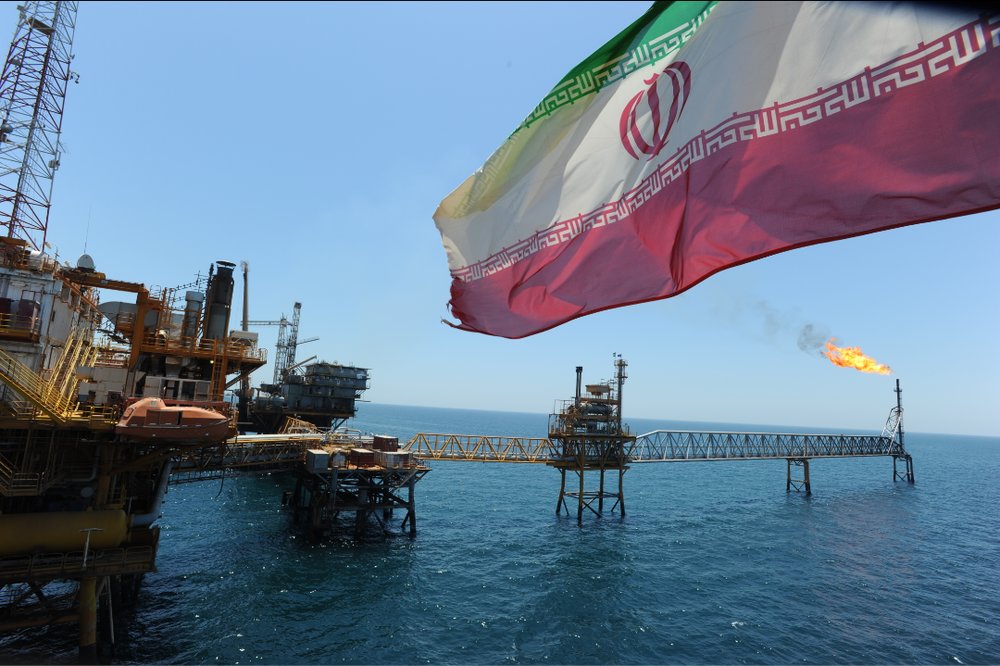What should be India’s priority: Energy security or ‘America first’?

TEHRAN - Although no final decision has been taken yet by New Delhi, speculation is rife that oil imports from Iran could slow down from August when some U.S. sanctions against Tehran take effect. However, for now, there is reason to cheer for those want to see India stand its ground and refuse to buckle under the U.S. pressure.
According to reports, India’s monthly oil imports from Iran touched a record high in July, jumping by about 30 percent to 768,000 barrels per day (bpd). The shipments include tankers that were loaded in June and arrived in India in July, based on preliminary tanker arrival data.
The volume of oil trade in July between New Delhi and Tehran marked a significant 85 percent jump from the same period last year when it was 415,000 bpd. Pertinently, Indian state refiners had reduced oil imports from Iran last year following a dispute over development rights of Farzad-B gas field, located in Persian Gulf.
Since the beginning of this fiscal year in April, the oil purchase from Tehran has surged, primarily due to heavy discounts, free shipping and extended credit period for oil sales offered by Iran.
According to reports, Iran has employed its own ships to transport oil to India as very few shipping lines had participated in recent tenders. Indian oil firm Hindustan Petroleum Corp Limited (HPCL) had to annul the purchase of an Iranian cargo a few weeks ago after it faced issues related to insurance cover. Other major Indian petroleum companies like Indian Oil Corporation (OIL) are expected to renew their insurance cover in next few months. But everything hinges on the final decision New Delhi takes.
Importantly, India is now the top oil client for Iran after China, having shipped in 5.67 million tonnes or about 457,000 barrels per day (bpd) of oil in the first three months of this fiscal year, India’s Union Petroleum and Natural Gas Minister Dharmendra Pradhan informed Indian parliament last week. And according to the latest data, quoted by Reuters and other news agencies, in the first four months of this fiscal year, India’s oil imports from Iran had reached 677,500 bpd.
However, it remains to be seen whether or not the oil keeps flowing after August. Some U.S. sanctions will take effect from August 6, while others, including those pertaining to oil and petroleum, will come into force from November 4.
India has been under tremendous pressure from the U.S. to cut oil imports from Iran in the wake of sanctions against Iran. New Delhi, which shares deep historical ties with Iran, had initially said that it does not recognize unilateral sanctions imposed by Washington, and only recognizes UN sanctions. However, later reports emerged in local and international media that a message had been sent to state refiners to be prepared for cut in oil imports from November.
In an attempt to allay fears and put speculation to rest, India’s Petroleum Minister Dharmendra Pradhan told a leading Indian daily last month that India sees U.S. sanctions on Iran as a “challenge” given its close ties with both the countries, and said New Delhi will take a “considered and considerate’ view based on ‘national interest’ on the issue of U.S. sanctions against Iranian oil.
A high-level U.S. delegation visited New Delhi last month to hold talks with Indian officials over the matter. Iran’s deputy foreign minister Seyyed Abbas Araghchi also visited New Delhi and held wide-ranging discussions with Indian foreign secretary Vijay Gokhale.
Meanwhile, an intense debate is underway in India’s media and intelligentsia circles over the issue of oil imports from Iran. Many experts and political stalwarts maintain that buying oil from Iran is in India’s national interest and succumbing to the U.S. pressure will send a wrong message to the world.
India’s former vice president Hamid Ansari believes Iran is an important country for India, and not just as an oil supplier. “We have to keep in mind two things. We get a good amount of energy supply from Iran. But Iran is not only an energy supplier,” Ansari told reporters in New Delhi. “Iran is a big and important country for us. It is a country which is next to Pakistan and Afghanistan. So when we look at Iran we have to understand these things too.”
Former Indian diplomat M K Bhadrakumar, writing in an Indian daily Deccan Herald, said India’s strategic autonomy and independent foreign policy demands that the approach to this Iran question should be based on national interests. “Nothing should be done to cause damage to the mutual trust and understanding in India’s relations with Iran. Equally, energy security – not ‘America First’ – should be our priority,” he wrote.
Last week, Germany also urged India not to buckle under the U.S. pressure and continue buying oil from Iran. German minister of state for International Affairs Niels Annen, during his visit to New Delhi, described the pressure being put by Washington on its allies to stop buying oil from Iran as “irritating”. “It will be India’s sovereign decision. I am not a salesman for Iran but I have an impression that India is willing to continue buying oil from Iran and this will be a very important statement,” he said.
Pertinently, Iran's deputy envoy to New Delhi Massoud Rezvanian Rahaghi had last month warned that India stands to lose many privileges if it betrays Iran and imports oil from other countries.
At a time when the oil imports from Iran are touching record high and Tehran is offering ‘privileges’ like discount, free shipping and insurance cover to Indian refiners, the decision between energy security and ‘America first’ should not be too difficult to make for New Delhi.
Leave a Comment